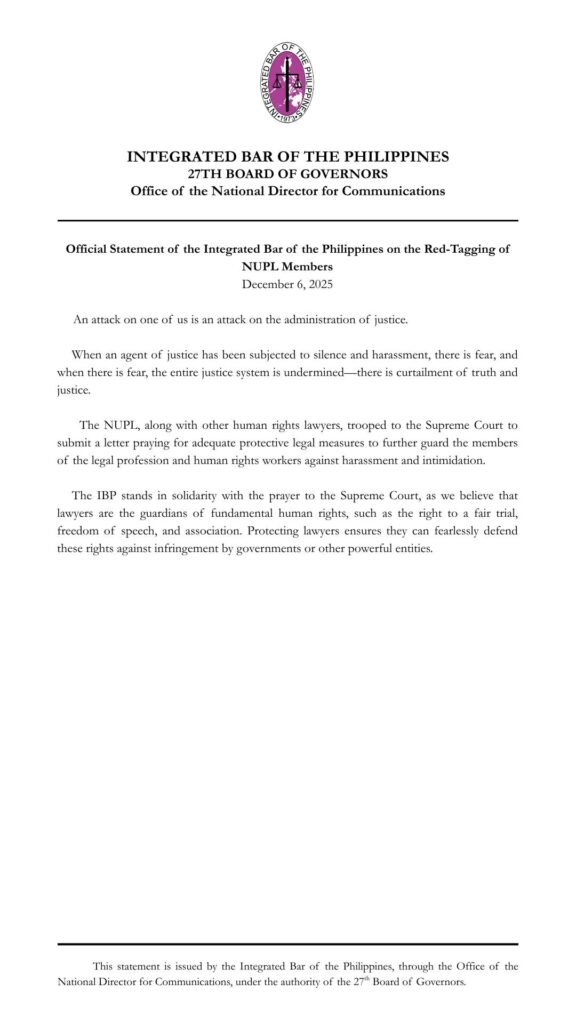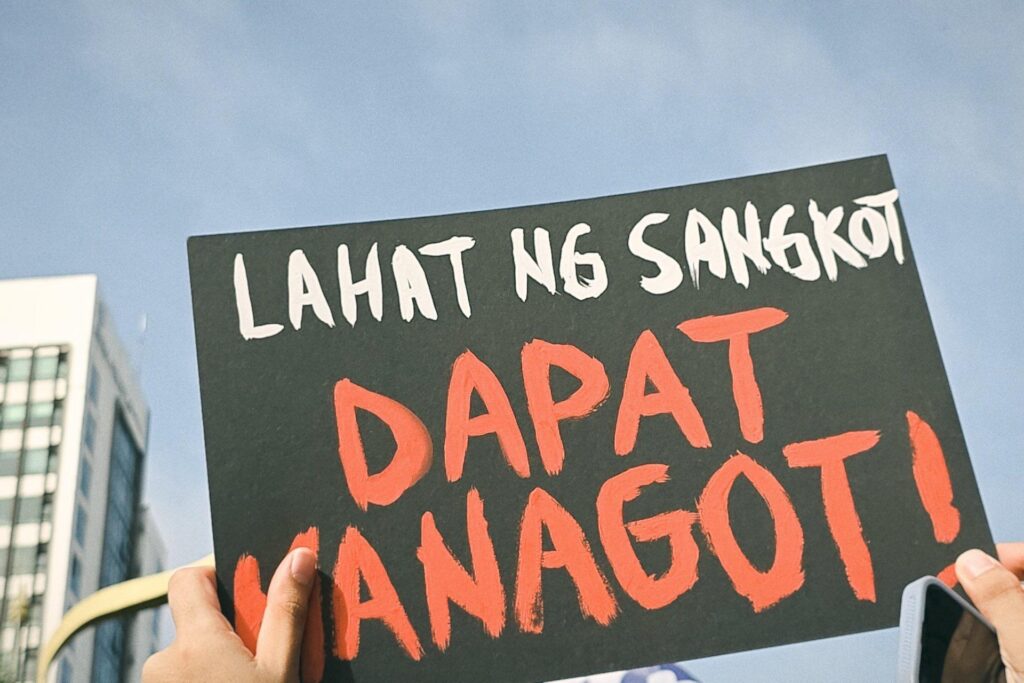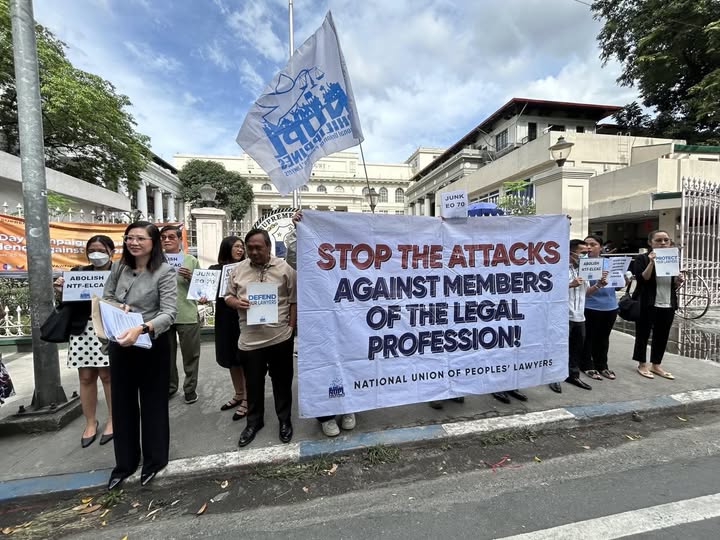“Poverty is a Marcos legacy.”
Farmer leaders Danilo Ramos, chairperson of the Kilusang Magbubukid ng Pilipinas (KMP) and Makabayan senatorial candidate, and Cathy Estavillo, secretary general of Amihan National Federation of Peasant Women and Gabriela Partylist nominee, attributed the worsening poverty situation in the country as revealed in the latest Social Weather Stations (SWS) survey showing that 14.4 million Filipino families consider themselves poor to the economic policies of Marcos Jr. “From then until now, poverty and hunger have remained emblems of Marcos’s brand of leadership.”
According to Ramos, the data is a “clear manifestation of the Marcos Jr. administration’s failure to address the deepening poverty and economic crisis.” He said this reflects not only poor governance but also the systematic neglect of the country’s food producers and urban poor communities.
“This is proof of anti-poor governance,” Ramos declared. “Farmers continue to suffer due to lack of government support, while the urban poor are burdened by soaring prices and lack of job opportunities.”
For her part, Estavillo emphasized that peasant women are among those hit hardest by the crisis. “Peasant women continue to face discrimination and are denied access to support from the government. In times of economic crisis, they are the first to feel the brunt of hunger and loss of income,” she said.
She also raised concerns about ongoing land-use conversions and land-grabbing practices that have displaced countless farming families. “The loss of farmlands has pushed farmers further into poverty, especially women who rely heavily on agriculture for their livelihood,” Estavillo said.
The Marcos Jr. administration recently hailed the drop in inflation to 1.8 percent in March 2025. However, Ramos and Estavillo criticized the celebration, saying this does not mean prices are going down, but rather that prices are increasing at a slower pace. “A 1.8 percent inflation rate still means that prices are rising—on top of the 8.7 percent inflation in January 2023, which remains unrecouped,” said Ramos.
They stressed that there is nothing to celebrate when prices continue to rise and the majority of Filipinos are left struggling. High inflation, they warned, means that households are forced to spend more for the same consumption—or worse, buy less and suffer reduced quality of life.
Estavillo explained that rising inflation also affects businesses. “With rising production costs, businesses face increasing challenges. Households with no savings limit the resources available for investment, ultimately slowing down the entire economy.”
Both leaders pointed to chronic social issues behind persistent inflation and poverty. “At the root of the crisis is an underdeveloped economy dominated by foreign monopolies, elites, and bureaucrat capitalists,” Ramos noted. “The Marcos administration—like those before it—has failed to prioritize strengthening our main productive sectors: agriculture and manufacturing.”
Agriculture now accounts for only 7.8 percent of the economy, and manufacturing just 17.3 percent, the lowest in several decades. The Philippines lacks its own national industry capable of supplying basic goods, production tools, and infrastructure. This reliance on foreign investment and imports has resulted in a weak economy that fails to generate decent jobs or self-sufficiency.
This economic model has pushed workers into precarious and low-paying jobs. Estavillo cited that around 42 percent of employed Filipinos are in the informal sector—working in insecure, low-wage jobs with no benefits or protections. “The current average minimum wage nationwide is only Php470, which is nearly Php755 short of the Php1,225 family living wage estimated by IBON Foundation,” she added. “Worse, many workers do not even receive the minimum wage or any benefits.”
Due to the lack of sustainable jobs and livable wages, poverty has become chronic in the country. The Bangko Sentral ng Pilipinas reported that 74 percent of households have little to no savings, while the latest SWS survey showed that 52 percent of families consider themselves poor. The same survey reported that 27.2 percent of Filipino families experienced involuntary hunger. Among self-rated poor families, the incidence of total hunger (combining moderate and severe hunger) rose sharply from 26.4 percent in February to 35.6 percent in March 2025.
Ramos and Estavillo called on the Marcos Jr. administration to immediately implement genuine agricultural reform. “We demand land reform, strong support for local production, and an end to the import-driven policies that are killing our local agriculture,” said Ramos.
“Women farmers must also be given the recognition and support they deserve,” Estavillo urged. “They play a vital role in food production, and supporting them is key to revitalizing our agricultural sector.”
The peasant leaders warned that the worsening poverty crisis cannot be resolved by superficial economic numbers or by appeasing foreign interests. “Genuine economic development can only be achieved through land reform, national industrialization, and social justice,” Ramos concluded. #




